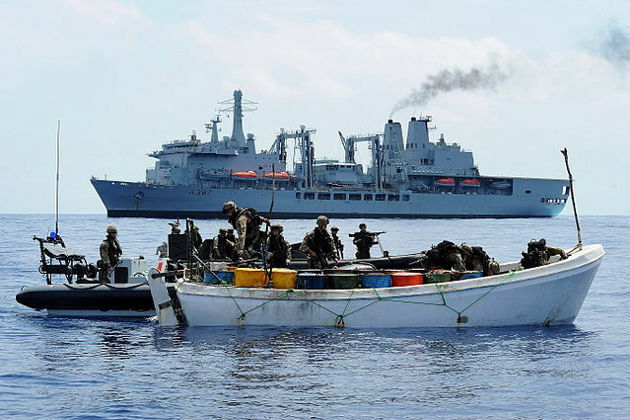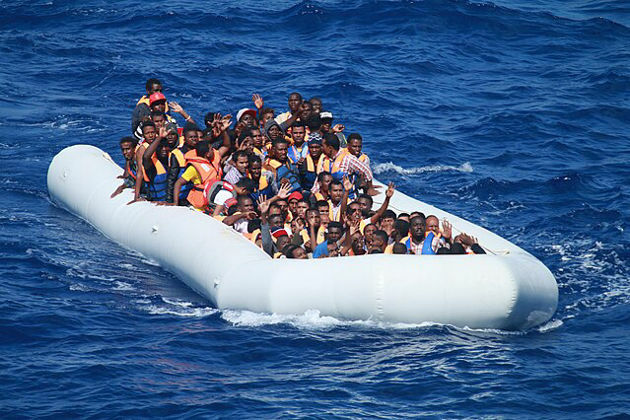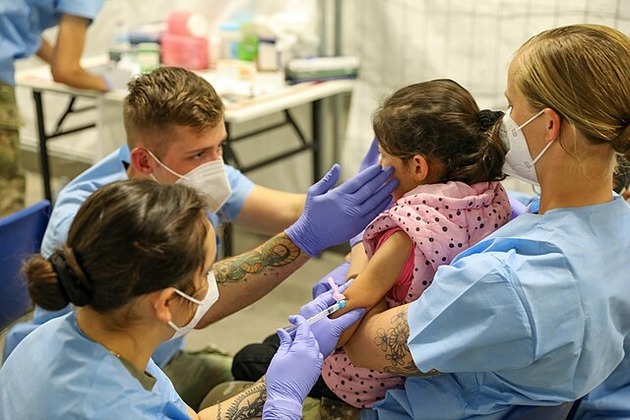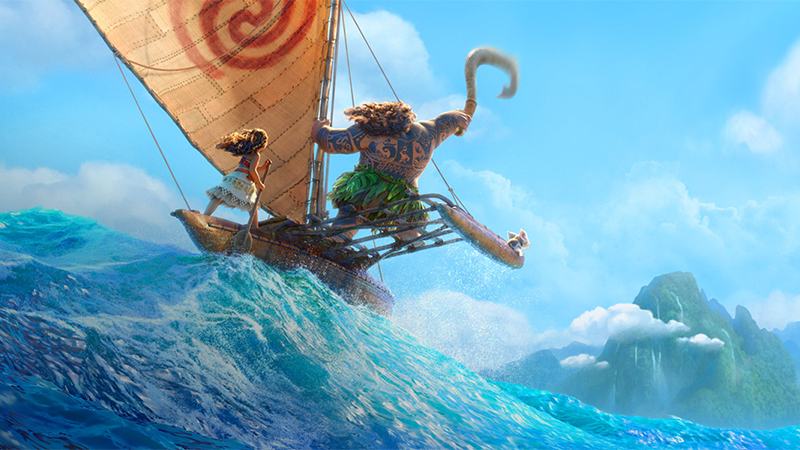Africa's freshwater ecosystems depend on little creatures like insects and snails: study maps overlooked species
The Conversation
13 Jul 2025, 08:21 GMT+10
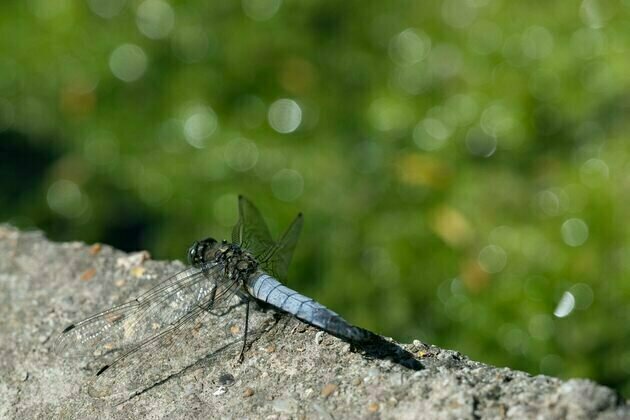
Africa's tropical belt, defined by the Guinean forests of west Africa and the Congo Basin of central Africa, is globally recognised for its astounding biodiversity.
Beneath the surface of this ecological region lies the world of freshwater macroinvertebrates. These are tiny creatures inhabiting rivers, streams and lakes. In the words of renowned American ecologist Edward O. Wilson:
invertebrates are the little things that run the world.
Macroinvertebrates include snails and larvae of dragonflies, caddisflies, mayflies and stoneflies, among others. They can be described as ecological engineers of freshwater ecosystems. They break down organic material, recycle nutrients, and form the base of food webs.
More importantly, they are the best biological indicators of freshwater ecosystem health. Their presence or absence tells the story of pollution, habitat degradation, or environmental recovery far better than any chemical test can.
But freshwater macroinvertebrates don't get much conservation attention. Some countries don't conduct surveys. There's also a shortage of people with the skills to do so.
Our study addresses this knowledge gap by compiling data on macroinvertebrates in the Guineo-Congolian region. The resulting database can be used to model their distribution.
As a biodiversity expert, I believe that models like this can help scientists to identify freshwater habitats and species that deserve urgent conservation attention.
Read more: Nigeria's pristine freshwater ecosystems need protection before they are lost
For the study, freshwater scientists from Nigeria and Germany compiled data on freshwater macroinvertebrates from 15 African countries.
Drawing from peer-reviewed publications and the Global Biodiversity Information Facility, we included only records identified to the species level. The Global Biodiversity Information Facility is a leading international platform that provides open access to biodiversity data globally.
Our study brings scattered data into a unified and curated resource. It can serve as a foundation for modelling species distributions and guiding conservation priorities. Similar approaches have been successfully applied in regions like Europe and North America, where species distribution data have helped inform freshwater habitat protection. Ours is among the first of such efforts focused on understudied African ecosystems.
The results were startling. Most countries in this tropical belt are severely underrepresented in macroinvertebrate records.
In some cases, such as Sao Tome and Principe, there are no records available at all. In others, like Equatorial Guinea and Togo, the number of documented records is extremely low (covering fewer than 50 species). Where such data exist, they would typically be accessible through platforms like the Global Biodiversity Information Facility or as published data.
Nigeria, the Democratic Republic of Congo, Gabon and Cameroon show better coverage with over 200 species each. These are mostly through national surveys, published studies, and contributions to global platforms. However, these numbers are modest when compared to the likely diversity in these countries. The number of species may be far higher, but limited sampling efforts and gaps in taxonomic research mean that much of this biodiversity remains undocumented. The figures don't give a complete or accurate picture of freshwater macroinvertebrate diversity.
Our study shows a clear positive relationship between the number of recorded species and the intensity of sampling efforts. Much biodiversity likely remains undocumented in under-sampled areas. The low number of species is not necessarily due to low biodiversity.
The study shows a direct correlation between the number of years countries invested in field sampling and the number of species recorded. Where effort increased, so did the number of species observed.
This shows that the region's freshwater biodiversity potential is vastly underestimated.
One notable absence is species that indicate healthy freshwater habitats: mayflies, stoneflies and caddisflies.
These species are known for their sensitivity to environmental stress. They are frequently used in biomonitoring programmes worldwide because where they are diverse and exist in large numbers, they indicate a healthy freshwater system. Their scarcity in African datasets reflects not their absence in nature, but a lack of taxonomic expertise and research focus.
Read more: Nigeria's mountain streams are a haven for special creatures - they need protection
To protect freshwater ecosystems, there is a need for:
macroinvertebrate surveys across under-sampled nations
investments in taxonomic training and access to identification tools - for citizen scientists as well as researchers
regional initiatives and transnational research partnerships to share expertise, data and methodologies among biodiversity experts.
National governments and the African Union must put freshwater biodiversity on their environmental agendas. Macroinvertebrate research and conservation need to be recognised as a vital component of achieving United Nations Sustainable Development Goal 15. This focuses on inland freshwater ecosystems. Fieldwork in previously unexplored sites has already led to the discovery of rare and threatened macroinvertebrate species.
Outstanding freshwater systems must be protected before they are lost.
Ignoring macroinvertebrates means ignoring the very foundation of healthy freshwater systems. These creatures are the silent custodians of biodiversity.
It is time to bring them out of the shadows into the forefront of conservation efforts.
 Share
Share
 Tweet
Tweet
 Share
Share
 Flip
Flip
 Email
Email
Watch latest videos
Subscribe and Follow
Get a daily dose of Madagascar Sun news through our daily email, its complimentary and keeps you fully up to date with world and business news as well.
News RELEASES
Publish news of your business, community or sports group, personnel appointments, major event and more by submitting a news release to Madagascar Sun.
More InformationAfrica
SectionOnly four 250+ chases at Lord's: Can India join elite list?
London [UK], July 13 (ANI): As India gears up for a potential big chase at the iconic Lord's Cricket Ground, the historical odds offer...
Sand, dust storms affect 330 million worldwide, cause 7 million premature deaths annually: UN
Geneva [Switzerland], July 13 (ANI): A recent report by the United Nations' World Meteorological Organisation (WMO) has revealed that...
Kiwi batter Devon Conway replaces injured Finn Allen for T20I tri-series against Zimbabwe, South Africa
New Delhi [India], July 13 (ANI): Devon Conway, Mitch Hay, Jimmy Neesham and Tim Robinson set to join the New Zealand T20I squad for...
Marc Marquez fends off Zarco for wet weather pole in Germany
Hohenstein-Ernstthal [Germany], July 13 (ANI): The wet weather has come to play on Saturday at the Liqui Moly Grand Prix of Germany,...
Africa's freshwater ecosystems depend on little creatures like insects and snails: study maps overlooked species
Africa's tropical belt, defined by the Guinean forests of west Africa and the Congo Basin of central Africa, is globally recognised...
Zimbabwe's lithium is in demand for making batteries: how to make sure benefits flow to the local economy
Zimbabwe has the largest lithium reserves on the African continent. Lithium has been mined since the colonial period in the 1950s....
International
SectionNew Hampshire federal court ruling defies Trump’s citizenship move
CONCORD, New Hampshire: A federal judge in New Hampshire issued a crucial ruling on July 10 against President Donald Trump's executive...
Houthis attack cargo ship in Red Sea, raising maritime safety fears
DUBAI, U.A.E.: A cargo ship flagged under Liberia, known as the Eternity C, sank in the Red Sea following an attack executed by Yemen's...
Trump administration restarts Ukraine arms deliveries
WASHINGTON, D.C.: The Trump administration has started sending some weapons to Ukraine again, just a week after the Pentagon told officials...
From France’s shores, desperate migrants look to reach British coast
ECAULT BEACH, France: On clear days, the white cliffs of the United Kingdom, are visible from northern France, where men, women, and...
CDC: US records 1,288 measles cases, most since 1992 outbreak
ATLANTA, Georgia: The United States is facing its worst measles outbreak in more than three decades, with 1,288 confirmed cases so...
Gaza War sucking life out of an Israeli generation
In the past month alone, 23 Israeli soldiers have been killed in Gaza—three more than the number of remaining living hostages held...







